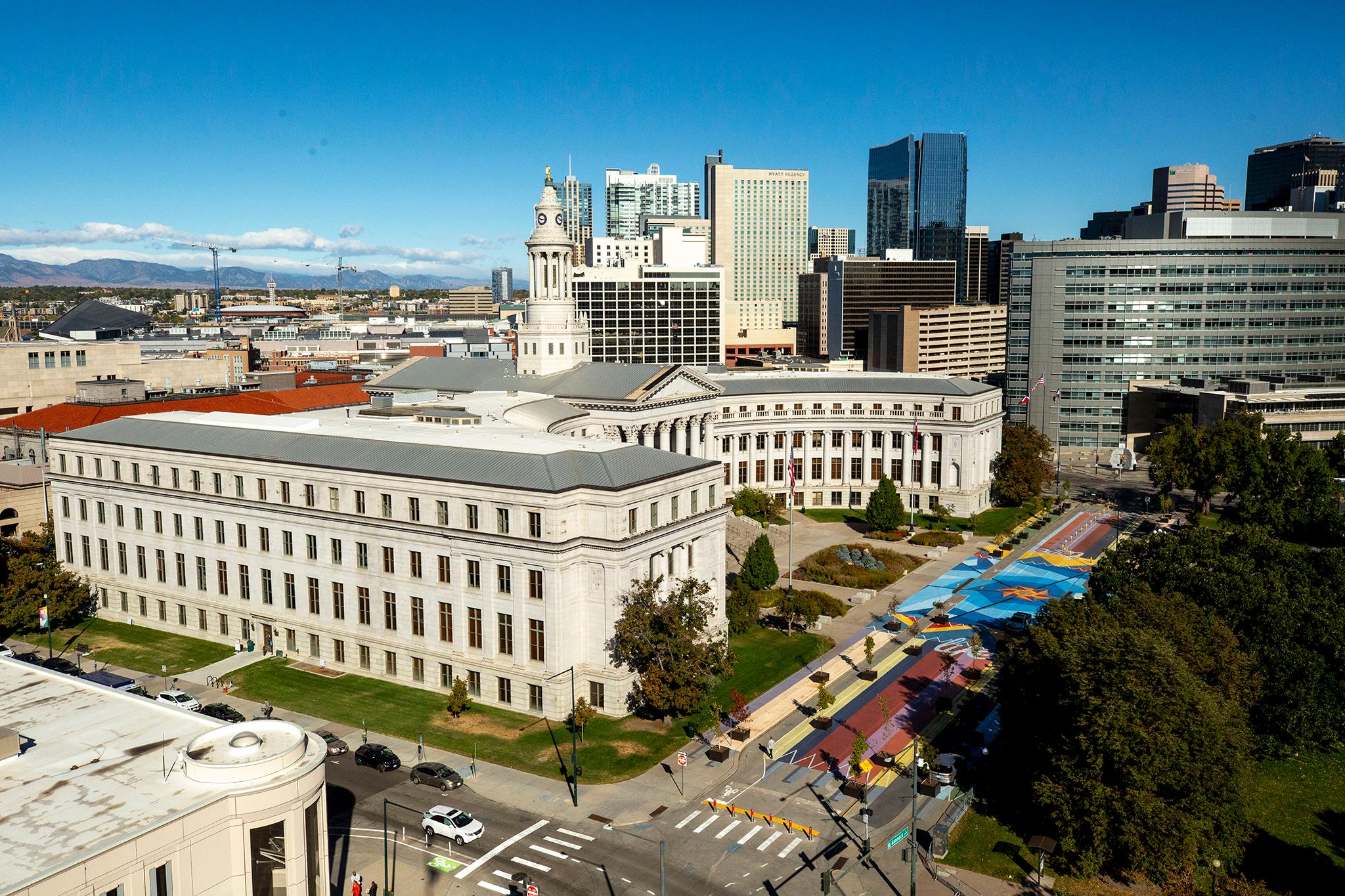Denverites, in less than nine months, you'll be voting for your next mayor and possibly deciding your next city council representative. With federal and state midterms on the way, it's still pretty early.
Still, citywide candidates who've officially kicked off campaigns had their first deadline to file fundraising numbers last week. We've got your first look at what's coming - and we'll be at it until the dust settles next year.
One caveat: Denver's elections division told us some candidates have already filed amendments, so dollar amounts will fluctuate later on. They can file amendments at any time, so all finance numbers will be fluid until the election is over.
You can check out our comprehensive dataset here, or see individual donations and up-to-date info at the Denver Clerk's new data portal. The charts on this page will update with each filing deadline.
Big picture: District 9 and at-large seats are heating up fastest, for now.
As far as total cash spent on races, campaigns for at-large candidates have far out-raised the other races. There's almost $200,000 in that race now; the rest have seen less than $70,000.
One simple reason is there are just more candidates. Seven people are currently contending for two open seats, compared to just three candidates each for mayor and District 9 (which includes incumbent Candi CdeBaca).
Still, three out of the top-ten raisers in any race are running for at-large seats. In first and second place across all races are Travis Leiker and Sarah Parady, respectively, who are both running for the citywide position. They've raised more than twice the money of any of their competitors so far. At-large candidate Tim Hoffman took eighth place in the overall list.
The second-most funded race is for District 9, but it's mostly one challenger whose purse pushed the race to that level. Darrell Watson, who's been involved in city committees under Mayor Hancock's administration, has so far raised $51,000 to try to unseat CdeBaca. His funding consists of 75 percent of all money invested in the race so far. Kwon Atlas, who's raised less than CdeBaca so far, also has ties to Hancock.
Three of four Council incumbents are dominating their races, as far as fundraising goes.
While CdeBaca is behind Watson in terms of money raised at this early stage, three of her colleagues facing challengers have so far out-raised their competitors. Kevin Flynn (District 2), Amanda Sawyer (District 5) and Chris Hinds (District 10) are all significantly better-funded than their rivals - each only has one person running against them at the moment. Hinds and Sawyer have each raised about $25,000, while Flynn brought in about $18,000. CdeBaca's earnings so far are around $11,000.
Council incumbents Amanda Sandoval (District 1), Jamie Torres (District 3), Paul Kashmann (District 6), and Stacie Gilmore (District 11) are all currently running unopposed. Members Chris Herndon (District 8), Robin Kniech and Debbie Ortega (both at-large) are all termed-out. Members Kendra Black (District 4) and Jolon Clark (District 7) are not seeking reelection.
Only one person, Tony Pigford, has announced a run at Black's old seat; he's raised $17,000 so far. Three people are running for Clark's seat, but only one, Adam Estroff, has raised more than $500, the minimum requirement to file finances. His purse sits at just under $10,000.
Here's what's going on with the mayoral race:
So far, three of seven candidates for Denver's top seat raised enough to require finance filing. Activist Ean Tafoya is leading the money race with a little more than $9,500 in loans, donations and in-kind support. Terrance Roberts, an activist who recently announced a lawsuit against the city over police brutality claims, is close behind with $8,000 in the bank. A host of others have expressed interest in running for the seat.
There aren't any dark money groups in the fray yet, and most contributions have come from locals.
So far, there's only been one contribution from a company, as opposed to an individual. District 5 incumbent Amanda Sawyer received $250 from the Vivage Small Donor Committee, a fund tied to an assisted living facility corporation that has donated to statewide campaigns on both sides of Colorado's political aisle.
Also, most candidates' individual donations have come from Colorado residents, if not people who live in Denver.
At the top of the list for most dollars raised from out-of-staters and non-Denverites is Erik Clarke, who's attracted almost $25,000 for his bid to unseat auditor Tim O'Brien. O'Brien, for what it's worth, hasn't taken in any donations at this point.
A representative from Clarke's campaign told us he has "a very large network of family and friends scattered across the country, which is where first time candidates go first for contributions."
Clarke, like almost every other candidate in this race right now, has received small donations from a lot of people. The average contribution for most candidates is below $150. District 5 incumbent Amanda Sawyer's average is about $200. Michael Hughes, who's running against Sawyer, has only one line item in the city's finance data: $2,000 he contributed to himself.
Correction: Denver's new data tool is run by the Clerk and Recorder, not Denver Elections.












